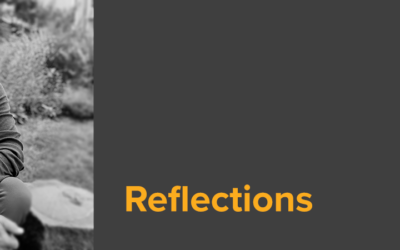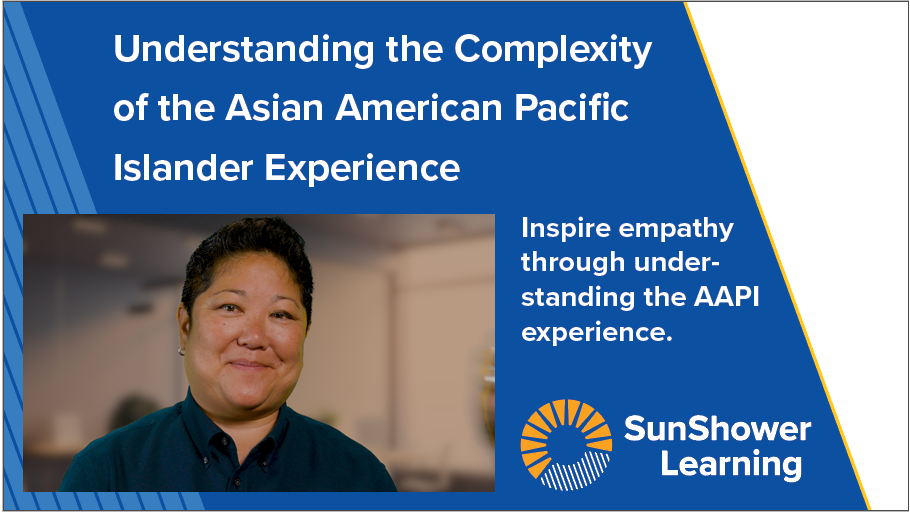
When Unconscious Bias Training Does More Harm Than Good
When I talk about our unconscious bias Workshops via Zoom or Defeating Unconscious Bias, our online e-Learning course, I always emphasize that our approach starts with raising awareness and then adds skills that everyone can practice to interrupt bias.
So it was rewarding to read the recent article at the Association for Talent Development. In it, Maureen Berkner Boyt writes, “Beware training that talks a lot about the neuroscience of unconscious bias and stops there. Knowing isn’t enough; the training must focus on doing. Effective workplace unconscious bias training for employees should be loaded with actionable, commonly shared bias interrupters that can be applied to daily work. For example, a set of behaviors for running an inclusive meeting.”
If you review our course, you’ll see that reflected in the title, 5 Skills, and illustrated with powerful and realistic video scenarios that show how and what to do to interrupt bias through concrete actions.
In one scenario, we show Beth, a team leader who is impatiently cutting off Jorge, who speaks English with an accent. When a colleague privately reflects to her that she was rude to Jorge and asks why, Beth takes time to reflect on what might be underlying her impatience. She acknowledges to herself that she has a linguistic bias and chooses to take action. She takes notes when Jorge speaks as a concrete way to slow down. She makes sure to call each person by name and ask a question about each person’s ideas to make sure she’s understanding. By being intentional about interacting with Jorge and the rest of her team, with an eye to make sure her “auto-pilot” impatience doesn’t kick in, Beth is demonstrating how to counteract and disrupt a hidden bias.
This is just one of the scenarios in the Defeating Unconscious Bias online course. You can preview it by clicking here and requesting a Test Drive. We’ll send you a link and you can review the full course.
The article also mentions the importance of who designed the course. “Deep expertise is needed to understand the research as well as the nuance of delivering a topic that can trigger hostility and an “us versus them” way of thinking.”
Fortunately, our course has been designed by Sondra Thiederman, Ph.D., who’s written books and spent years studying and training about unconscious bias. You can read more about Sondra and sample her blog articles here.
More From Our Blog…
My Mid-September Reflections
A moment of reflectionAs I sat down to write this email, I found myself scrolling through the mailing list and recognizing so many names—people I’ve had conversations with that still stand out. Whether it was about Ouch!, purchasing a license or discussing trends in...
The Great Detachment: Why Employee Engagement is at Risk—Especially for Gen Z
As described in a recent article entitled, “The Great Detachment is looming for employees, experts warn—especially for Gen Z” by Lindsay Dodgson, employee disengagement is becoming an increasingly critical issue for companies worldwide. With a staggering cost of over...
Understanding Employee Responses to DEI Initiatives: Insights and Strategies
A recent study sheds light on a previously underexplored aspect of DEI training. While much focus has been placed on the facilitators, trainers and the content of DEI programs, this study examines how employees actually respond to the training. Published in Harvard...
SHRM’s Removal of “Equity” From DEI Framework: A Step Backwards Amid Growing Backlash
In a stunning step in the wrong direction, the Society for Human Resources Management (SHRM), the world’s largest HR association, has removed “Equity” from its “IE&D” framework. What message does this send, especially amid strong pushback against Diversity, Equity...
Navigating the Shifting Landscape of Diversity, Equity and Inclusion Programs
In the midst of the evolving landscape of corporate diversity initiatives, there's a seismic shift underway. The once-prominent acronym "DEI" - representing diversity, equity and inclusion - is notably absent from many company discussions. As explained in the article...
A Groundbreaking New Course: Understanding the Complexity of the Asian American Pacific Islander Experience
With over two decades of experience in the educational sector, Hideko Akashi, founder and lead consultant at Liberation Consulting, has been a steadfast advocate for diversity, privilege, social justice, inclusion and equity. Now, she's opening a new chapter with the...






